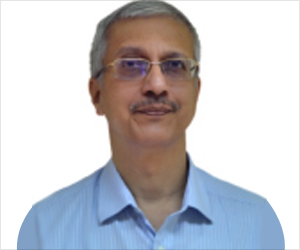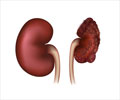World Tuberculosis Day 2017 is observed on 24th March 2017 and Medindia hosts an exclusive interview with Dr. Srikanth Tripathy.
- World Tuberculosis Day 2017 will be observed on 24th March
- The theme is “Unite to End TB”
- Exclusive Interview with Dr. Srikanth Tripathy, Director, National Institute of Research in Tuberculosis
Key Ethical Guidelines to Governments provided by WHO
These are the 5 key ethical guidelines provided by WHO to governments, health care workers, sanitation staff and other people who play a role in the welfare of a patient with TB- Avoid isolating patients with TB
- Identify ‘key populations’ to provide standard care
- Administer social support to patients to help them carry out their social responsibilities
- Provide a safe environment for health care workers
- Utilize the evidence gained from research during policy updates
Theme for World TB Day 2017: “Unite to End TB”
The theme "Unite to End TB" was started in 2016 and is a two year campaign. This year, WHO has placed additional focus on targeting strategies to "Leave No One Behind", addressing discrimination, isolation, stigma and marginalization.Exclusive Interview with Dr. Srikanth Tripathy for World TB Day 2017
Dr. Srikanth Tripathy is the Director of the National Institute of Tuberculosis Research Centre, earlier known as Tuberculosis Research Centre, Chetpet, Chennai. The institute was established in 1955 by the Indian Council for Medical Research (ICMR), WHO and the British Medical Research Council, and has been pioneering Tuberculosis (TB) research for over 70 years. The International recognition for the institute includes that it is
- declared as a WHO collaborating Centre for Research and Training in TB
- a supranational Mycobacterial Microbiology Reference Laboratory
- involved in a collaboration with NIH, US, resulting in an International Centre of Excellence in Research (ICER) being established
- a National Reference Laboratory for WHO for the genotyping of drug resistance testing of HIV
Dr. Srikanth Tripathy completed his medical degree from Madras Medical College and has held important posts in prestigious institutions across India. Some of his key achievements include:
- Nearly 50 publications in National and International Journals
- 30 years of research experience with tuberculosis
- Held the post of Assistant Director at the Institute of Virology, Pune
Medindia: Good morning Doctor. What are your suggestions to eradicate TB in India?
- Strengthen existing systems in the health care system in India for the diagnosis and proper treatment of tuberculosis both in the government and private sectors
- Accelerate case detection: This may require the need to put measures in place for active case detection of TB patients to prevent transmission in the community
- Research to find a more effective and shorter duration treatment for the treatment of both drug sensitive and drug resistant tuberculosis.
- TB preventive therapy (either INH preventive therapy or the use of other proven therapies for the prevention of TB) in household contacts of active cases who are less than 6 years old
- Research for discovery of a more potent anti-TB vaccine
- Healthy nutrition, cleaner environment and better living conditions for the poorer and lower middle class section of the society
- Better facilities for detection and treatment of TB in vulnerable section of the society like prisons, Commercial Sex Workers (CSWs), Intravenous Drug Users (IVDUs), HIV+ves, diabetics, those on immunosuppressive treatment, among other communities.
Medindia: What are the reasons it is so common in India?
Medindia: Will Swachh Bharat improve the situation?
Dr. Srikanth Tripathy: Clean environment and better living conditions with proper ventilation, low pollution and avoidance of smoking will help improve health of the citizens and also reduce the risk of TB in the community.
Medindia: What do you think are the areas of focus in India?
Dr. Srikanth Tripathy: Slums, prisons, red light areas, HIV+ve people, diabetics, malnourished children, antenatal mothers with malnutrition, weavers, miners, areas with high pollution, especially indoor pollution due to use of firewood without adequate ventilation, alcoholics, smokers, stone crushers/quarry workers: are at increased risk of developing TB.
Medindia: Since developed nations do not have too many incidences of tuberculosis, is there sufficient research going on for Tb?
Dr. Srikanth Tripathy: More funding for TB research will help to attain the goal of TB eradication.
Medindia: Do you think we can set a date by which TB will be eradicated?
Dr. Srikanth Tripathy : WHO has set a goal of TB eradication by 2030 which has also been agreed to by the Health Ministers of the Southeast Asian countries last week at the meeting in Delhi.
Medindia: Your contribution has been commendable, could you please clarify some landmarks in your tenure as the director of Tuberculosis Research Centre?
Dr. Srikanth Tripathy: I have been in charge only since the last 5 months but have worked with TB and HIV patients for the last 30 years.
Medindia: What are the campaigns being organized for World Tuberculosis Day 2017 tomorrow?
Dr. Srikanth Tripathy: At NIRT in Chennai, we are arranging a program for nurses to create awareness about TB. TB awareness programs in the community are also being done with the State Government, along with screening of TB symptomatics in the community by the use of our bus, which is equipped with X-ray machine together with collection of sputum samples for testing for TB bacillus by microscopy.
References:
- World Tuberculosis Day - (http://www.who.int/campaigns/tb-day/2017/event/en/)
















